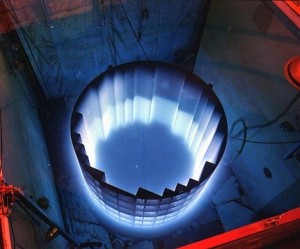Below is an excerpt from my most recent Flyover Geeks piece. Read the whole thing here.
The still-developing situation at the Fukushima nuclear power plant after last week’s devastating earthquake is not, I repeat, is not another Chernobyl, despite what headline writers and news anchors would like to claim. I assert that, while this crisis hasn’t killed as many people, or leaked as much radiation or fissile material as the 1986 disaster, the events of the past week place nuclear power at the center of public attention like no other time since the partial core meltdown at Three Mile Island, thirty-one years ago. It calls into question the safety of nuclear energy, and, when the dust settles, will greatly influence future policy debate over cleaner alternatives to fossil-fuelled energy production.
My argument, that Fukushima is more significant, policy-wise, than Chernobyl, rests on three arguments. Japan is a geographically small, economically powerful ally of the United States; natural disasters, for which Japan is extremely well-prepared, take away the element of human culpability. Finally, despite Japan’s place at the head of the technological pack for the past twenty years at least, the burden of cleaning up this disaster rests on the shoulders of men and women; which, aside from the mixed-gender situation, sounds very much like the Chernobyl situation. Except now we have CNN to make a human drama out of it.


Leave a Reply